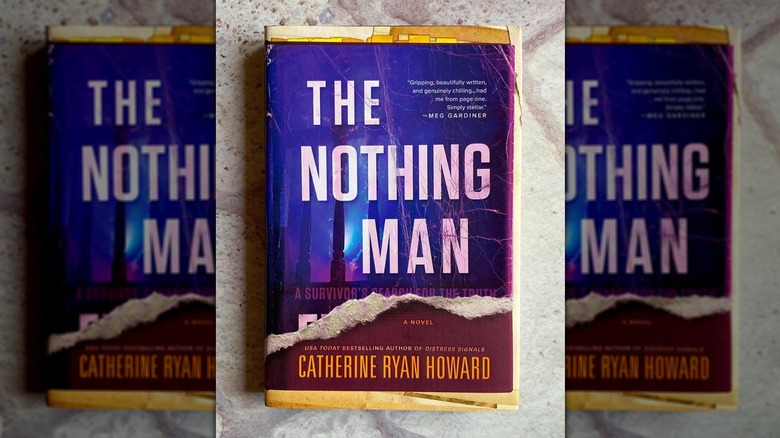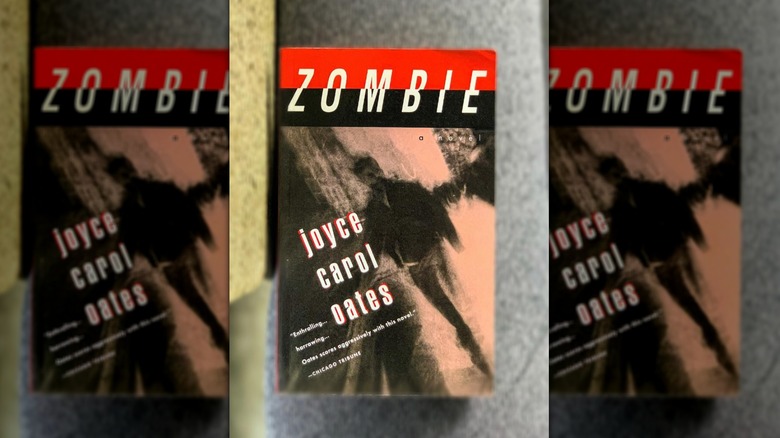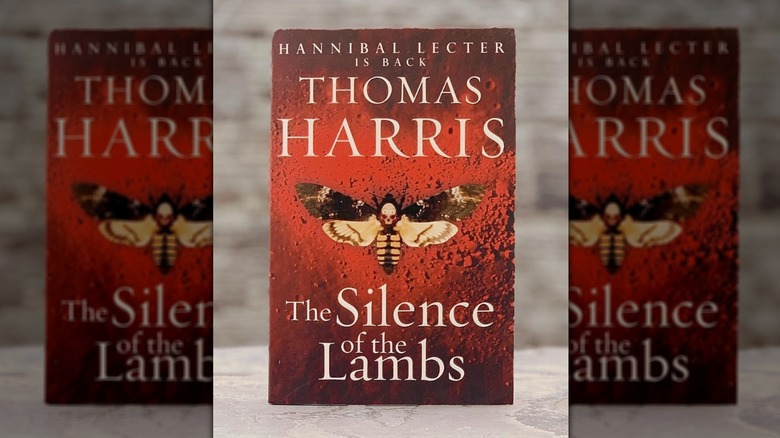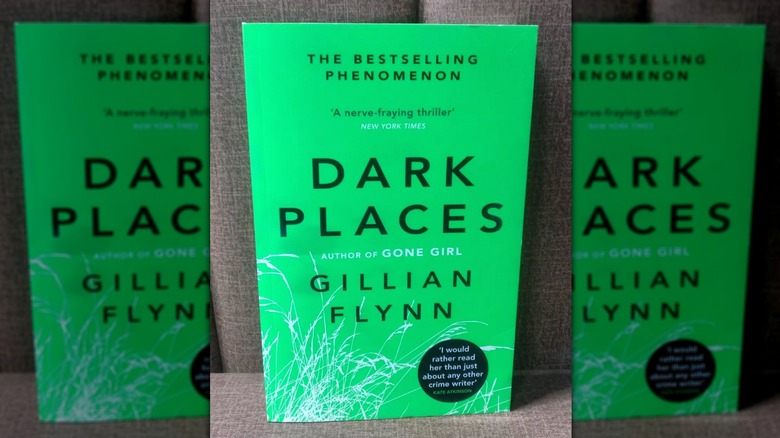The Best Thriller Books Centered On Serial Killers For A Creepy And Captivating Read
Although serial killers have been around for centuries, only in the last few decades has the public's fascination with them really taken off. With the 1970s through the early 2000s being known as the "golden age of serial killers" in the U.S. and the media coverage of it all, our culture's morbid interest in serial killers has only grown. So much so that many people, women especially, can't get enough of true crime stories.
"Our media environment is especially well-suited to creating celebrity and sustaining that celebrity," true crime professor Deborah Jaramillo told BU Today in 2023. "[We have] this idea of the celebrity criminal, and serial killers kind of turn into celebrities." In other words, your desire to curl up with a novel about serial killers or watch Netflix's "Dahmer" for a third time isn't as strange as it might seem. In fact, it's become a normal interest.
If you're looking for an edge-of-your-seat thriller book to add to your fall 2025 TBR, then these books about serial killers will be right up your alley. While some are classics, others are new books to the genre. Either way, each selection is the right amount of creepy to captivate you and leave you needing to keep the light on when you go to bed.
The Nothing Man by Catherine Ryan Howard
Eve Black was only 12 when she survived an attack by a serial killer called the Nothing Man. Although Eve lived to tell the tale, the rest of her family wasn't so lucky. To try to make sense of her pain and discover who the person was behind these murders, Eve writes a memoir about her experience, hoping to shed new light on the case. Meanwhile, serial killer Jim Doyle is alive and well, working as a security guard. Jim, who has since stopped murdering people, thought that he was safe in his new life until Eve's book is published and he starts reading it. Eventually, he realizes that Eve is getting closer to the truth, and he'll do anything to prevent it.
With "The Nothing Man," Catherine Ryan Howard writes Jim's story within Eve's story. While it all essentially belongs to Eve, Howard does dip out of the central narrative from time to time to give Jim's take on the book he's reading, as well as the circumstances that made him what he was. What's interesting about this novel is that it gives both the victim and the perpetrator a voice, as opposed to being one-sided. It's this dynamic that not only makes for an exciting read but also elevates this book to psychological thriller status. As the two stories of Jim and Eve get closer and closer, this book becomes harder to put down.
Zombie by Joyce Carol Oates
Quentin P. is a young man in search of the perfect guy. That means someone who will never leave and is, ideally, a sex slave. To have such a person, Quentin performs brain surgery on victims in the hopes of creating a zombie on whom he can count forever. Brain surgery isn't easy, so every time Quentin fails, he gets a new victim and tries all over again, leading to a whole slew of dead bodies.
If you think the premise of "Zombie" sounds familiar, it's because Joyce Carol Oates was heavily inspired by real-life serial killer Jeffrey Dahmer. Not only did Oates do a deep dive into Dahmer to create such a gripping character, but there's evidence that she took a look at other famous serial killers, too. For example, in "Zombie," we're privy to Quentin's journal that's written with the same mania and chaos as that of David Berkowitz, also known as the Son of Sam. The journal also includes drawings and symbols that are reminiscent of the letters the Zodiac Killer sent to newspapers in the early 1970s.
While it's one thing to read about serial killers, it's another thing to be in their mind, and that's exactly where Oates puts the reader. That being said, as phenomenally as this book is written, it might be a little too disturbing for some. However, a lot of great art is meant to disturb, so consider that before passing on this one.
The Silence of the Lambs by Thomas Harris
When it comes to killer thrillers, you can't go wrong with a classic like "The Silence of the Lambs" by Thomas Harris. Even if you've seen the film, the book is worth a read. It's not just about his characters Clarice Starling, Dr. Hannibal Lecter, and Buffalo Bill, but it remains a novel that has set a standard to which many others can only dream of achieving.
Published in 1988 as a sequel to Harris's 1981 book "Red Dragon," Hannibal Lecter finds his match in FBI newbie Clarice Starling, who's been put on the Jame "Buffalo Bill" Gumb case; Gumb has been kidnapping and killing women, whom he then dumps in rivers. Starling's boss asks her to meet with Lecter, who's also a serial killer, in the hopes of getting information on Gumb, his motives, and where he can be found.
There are a lot of twists and turns in the book that are just as climactic as the movie. It's also worth noting that Harris took pieces from multiple serial killers to create Buffalo Bill. For example, Ted Bundy would pretend to be injured, often feigning a broken arm, to get his victims into his car, as Bill does throughout the story, while the inspiration for the skin suits came from Ed Gein. Gein infamously made masks out of human skin, as well as household items out of the skin and bones of bodies he stole from the local cemetery.
Dark Places by Gillian Flynn
Although 2012's "Gone Girl," a thriller book that proves women are a force to be reckoned with, made Gillian Flynn a household name, before that, there was "Dark Places." Taking place in Kansas in 1985, "Dark Places" is about Libby Day, whose whole family was murdered. As a child, she believed the killer was her brother Ben, and it was her testimony that sent him to jail. But as an adult, Libby wonders if what she thought about the incident was true, or if she could've been wrong.
Like "The Nothing Man" by Catherine Ryan Howard, "Dark Places" is also told from more than one perspective. In this case, we have the protagonist Libby, but Ben and their mother Patty also give voice to the story through flashbacks, allowing for an in-depth look at all three characters, their fears, and their realities. As the story moves, other characters are introduced, including a group who have long believed in Ben's innocence, ultimately making Libby question what she thought she knew.
In "Dark Places," Flynn does what she does best: grabs your attention, spins you around a dozen times, then solves the crime before you even know what hit you. Flynn's writing is so dark and haunting that even the king of horror himself, Stephen King, is a fan of her work, calling Flynn a "compelling storyteller with a knack for the macabre." With a compliment like that, you know you're about to read something good.




